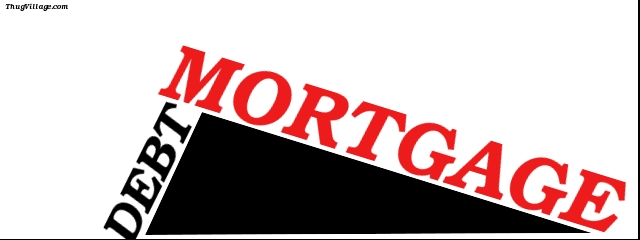Rights of Foreclosure

In the U.S., each year, lenders file millions of foreclosures. As a homeowner or a future homeowner you should know the basics of foreclosure. If you find yourself in this unfortunate situation you will know how to prevent losing your home and your rights throughout the process.
Foreclosure Overview
Homeowner’s Rights Act:
This act requires the lender to give a complete and clear notification of the borrower’s legal rights and options if a foreclosure suit is served. The notice needs to still advise the homeowners that they can still sell their home or pay off their loans during the redemption period. A redemption period is the time that the homeowners get to stop the foreclosure.The law also requires lenders to provide borrowers with an accurate statement of the outstanding mortgage balance within 10 days of the borrower's request.This gives the people time to see the exact money needed to stop the foreclosure and lets them find a way to get the money.
The process of foreclosure:
In Illinois the foreclosure process takes approximately nine months. There are several key steps a homeowner should know about. Foreclosure begins with default; that is when you miss your first payment on your home. If you default for three months, then your lender can start the legal process of foreclosure. After your lender files for foreclosure you will receive a summons telling you what’s happening and your rights including reinstatement and redemption. You must reply to the summons. If you don’t the the lender will move for a summary or default judgement. If you are unable to pay the money you owe the lender within 7 months after the summons the lender may sell the home by judicial sale. You must be notified of the sale. The notice must also be published for at least three weeks prior to the sale. The lender files a petition with with the court confirming the sale. The court will confirm the sale unless they find issue with the legality of the sale.
Definition:
If a borrower has missed payments on his mortgage, it causes the mortgage to go into default. The lender then has the right to start foreclosure proceedings according the the Illinois foreclosure law. The law states that “the lender is permitted to file a lawsuit in order to begin judicial foreclosure proceedings, as a non-judicial “power of sale” foreclosure is not allowed under Illinois foreclosure law.
Rights:
A homeowner who has defaulted on his or her payments, but is able to come up with the capital owed to the lender at the time of the foreclosure notice may stop the process of foreclosure. If this is not the case the homeowner may talk to the lender and try to organize a private sale. This generally can pay off the existing mortgage debt and leave the homeowner with a profit. You are allowed to remain in the home during a foreclosure, but you must maintain the home and pay taxes and insurance on the home as you normally would. In most states the homeowner has the right of redemption. This law allows the homeowner to regain ownership of their home by paying the foreclosure sale price on the home and an interest rate to the lender.
Avoiding Foreclosure:
Making Home Affordable Program (HMA): is a strategy Obama created to help stabilize the nation's housing markets and improve the nation’s economy.
Home Affordable Modification Program (HAMP): HAMP lowers your monthly mortgage payment to 31 percent of your verified monthly gross (pre-tax) income to make your payments more affordable.
Principal Reduction Alternative (PRA): PRA was designed to help homeowners whose homes are worth significantly less than they owe by encouraging servicers and investors to reduce the amount you owe on your home.
Home Affordable Refinance Program (HARP): If you are current on your mortgage and have been unable to obtain a traditional refinance because the value of your home has declined, you may be eligible to refinance through HARP. HARP is designed to help you refinance into a new affordable, more stable mortgage.
Rights during foreclosure:
Once your lender has filed a Notice of Default you still have the chance to work with you lender to find a solution to your situation. Possible solutions include loan modifications, short sale, or a deed in lieu. You still have the right to pay back all missed payments and fees after the Notice of Default. Even if you think you have stopped the foreclosure process it’s possible that it’s still going through, because the process continues until the situation is entirely resolved. So, if you’re working on a potential modification until the modification goes throughout the foreclosure process is continuing.
U.S Government Tips for Foreclosure:
1. Don't ignore the problem.
The further behind you become, the harder it will be to pay back your loan, and eventually you will lose your house.
2. Contact your lender as soon as you realize that you have a problem.
Lenders do not want your house. They have options to help borrowers through difficult financial times.
3. Open and respond to all mail from your lender.
The first notices you receive will offer good information about foreclosure prevention options that can help you weather financial problems. Later mail may include important notices of pending legal action. Your failure to open the mail will not be an excuse in foreclosure court.
4. Know your mortgage rights.
Find your loan documents and read them so you know what your lender may do if you can't make your payments. Learn about the foreclosure laws and timeframes in your state (as every state is different) by contacting the State Government Housing Office.
5. Understand foreclosure prevention options.
Valuable information about foreclosure prevention (also called loss mitigation) options can be found online.
6. Contact a HUD-approved housing counselor.
The U.S. Department of Housing and Urban Development (HUD) funds free or very low-cost housing counseling nationwide. Housing counselors can help you understand the law and your options, organize your finances and represent you in negotiations with your lender, if you need this assistance.
7. Prioritize your spending.
After healthcare, keeping your house should be your first priority. Review your finances and see where you can cut spending in order to make your mortgage payment. Look for optional expenses--cable TV, memberships, entertainment--that you can eliminate. Delay payments on credit cards and other "unsecured" debt until you have paid your mortgage.
8. Use your assets.
Do you have assets--a second car, jewelry, a whole life insurance policy--that you can sell for cash to help reinstate your loan? Can anyone in your household get an extra job to bring in additional income? Even if these efforts don't significantly increase your available cash or your income, they demonstrate to your lender that you are willing to make sacrifices to keep your home.
9. Avoid foreclosure prevention companies.
You don't need to pay fees for foreclosure prevention help--use that money to pay the mortgage instead.
10. Don't lose your house to foreclosure recovery scams
If any firm claims they can stop your foreclosure immediately and if you sign a document appointing them to act on your behalf, you may well be signing over the title to your property and becoming a renter in your own home! Never sign a legal document without reading and understanding all the terms and getting professional advice from an attorney or a trusted real estate professional
Foreclosure scams to beware of...
- Offers to improve credit or to receive finance from an investor
- Offers to rent your house back in time
- Offers to lend you more than the required amount
- Last minute changes in terms
- Agencies offering counseling through phone
- Phantom help-a liberator who charges for everything imaginable, but does nothing to save your home.
- Bailout- a liberator tells you that you will remain in the home as a renter and you can eventually buy back the home. Once they own the home they can sell it to anyone they like.
- Bait and Switch- you think you are receiving a short term loan, but the scammers sneak a little clause in the paperwork that turns ownership over to them.
 What do Chicago lawyers have to say?
What do Chicago lawyers have to say?SULAIMAN LAW GROUP BLOG:
In this tough economy many people are struggling with their personal finances which is contributing to their debt, which ultimately ends with their house in foreclosure. In this survey conducted in this law group’
s blog stated that
3% are perfect
4% are fine
13% could use help
80% are in need of MAJOR help
These staggering statistics calculated shows that many people are struggling with their finances. The law group also states that the Troubled Asset Relief Program (TARP) passed by congress in 2008 has barely helped the housing market. The law was a $700 million program designed to help homeowners struggling with mortgage debt. The effect of this law has not been great at all.
We attempted to contact Senator Richard Durbin to hear his views on this subject, unfortunately he didn't respond to our email.

No comments:
Post a Comment